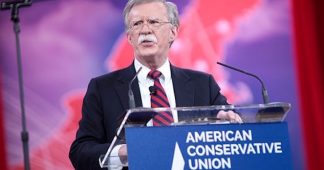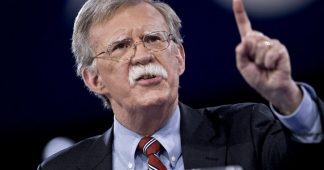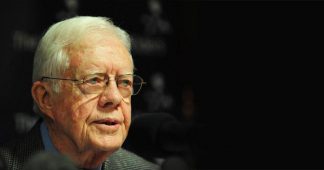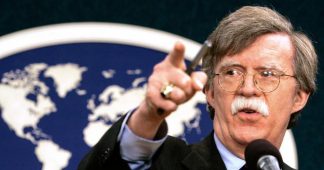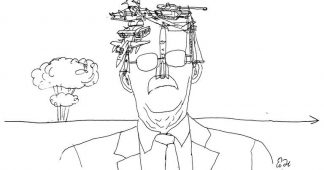7 Apr, 2018
The first OPCW chief, who tried to bring Iraq and Libya into the organization, told RT how US foreign policy hawk John Bolton threatened him over his refusal to resign prior to the 2003 Iraq War.
Jose Bustani, the first director-general of the global chemical weapons watchdog Organization for the Prohibition of Chemical Weapons (OPCW), sat down with RT and revealed how John Bolton, a Bush-era official and now Donald Trump’s pick for National Security Adviser, bulldozed the way for the 2003 Iraq invasion.
Bustani, a Brazilian diplomat, led the organization from 1997 until 2002, when he was ousted after falling out of favor with the US. At the time, he was trying to convince Iraq and Libya to join the organization, meaning that the two countries would have been obliged to dispose of all chemical weapons if they had any.
He said that according to reliable intelligence he had as director-general, “it was obvious that during the first Iraq War everything had been destroyed [by Iraq],” and there was “nothing left for Iraq to be accused of possessing chemical weapons.”
In 2001, OPCW inspectors examined Iraqi facilities, and it was “a successful operation,” after which Bustani’s informal dialogue with the Iraqis and Libyans about joining the organization made a breakthrough, he recalled.
But diplomatic efforts and peacemaking did not sit well with Washington, because “they had plans already to take some action – military action – against Iraq,” Bustani claims. Shortly afterwards, the Bush administration began to aggressively lobby for his removal, and it became “a tragic story” for him, he said.
“I got a phone call from John Bolton – it was first time I had contact with him – and he said he had instructions to tell me that I have to resign from the organization, and I asked him why,” Bustani told RT. “He said that [my] management style was not agreeable to Washington.”
He resolutely refused to resign, only to see Bolton again at OPCW headquarters in The Hague several weeks after the phone conversation. “He came to my office and said: ‘You have to resign and I give you 24 hours, this is what we want. You have to leave, you have to resign from your organization, director-general.'”
Bustani said he “owed nothing” to the US, pointing out that he was appointed by all OPCW member states. Striking a more sinister tone, Bolton said: “OK, so there will be retaliation. Prepare to accept the consequences. We know where your kids are.”
According to Bustani, two of his children were in New York at the time, and his daughter was in London. He told Bolton: “My family is aware of what’s going on, so [they’re] prepared to face consequences.” The reply shocked Bolton, who then left the office.
On April 21, 2002, a special meeting was finally held in The Hague, and Bustani’s removal was carried out by a vote of 48–7, with 43 abstentions. The diplomat said those who abstained were from developing countries, and that his own government in Brazil “left me behind.”
“He’s not a man you can have a dialogue with,” Bustani said when asked about his opinion on the newly-appointed National Security Adviser. “On the basis of my own experience, I don’t believe that Mr. Bolton is capable of being a National Security Adviser to any government of the United States.”
Bolton, who was Under Secretary of State for Arms Control and International Security in the Bush administration from 2002-2004, and ambassador to the UN, “has prejudices, he made a number of announcements that are worrisome,” including on North Korea, Iran, and Syria.
The latter is critical, Bustani says, “because it could be a new Iraq with much more serious consequences with impact on the whole Middle East today.
“And I believe that, as a result of the Iraqi invasion, for example, you have today Daesh [Arabic acronym for Islamic State (IS, formerly ISIS)] and… different fanatic Islamic movements” tearing the region apart.
Published at https://www.rt.com/usa/423477-bolton-threat-opcw-iraq/
